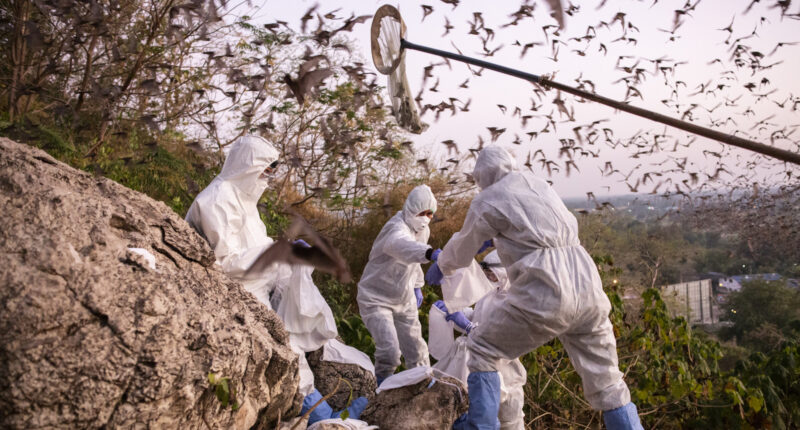The Centers for Disease Control and Prevention (CDC) said on Monday that the new coronavirus found in bats is currently not a cause for concern.
The federal health agency states that there is currently no evidence to suggest that the virus is a threat to public health, and no cases of infection in humans have been reported.
In response to a publication regarding a new bat coronavirus, the CDC has reassured the public that there is no immediate cause for concern regarding its impact on public health. While the virus has shown the ability to enter human cells in laboratory conditions using a specific protein, no human infections have been detected so far.
A recent study published by Chinese researchers from institutions such as the Wuhan Institute of Virology and Guangzhou Medical University reported the discovery of a new bat coronavirus with the potential to infect humans in the scientific journal Cell.
The newer coronavirus is known as HKU5-CoV-2 and is a type of merbecovirus, which is the same family of another coronavirus known to infect humans called Middle East Respiratory Syndrome (MERS).
In a lab study, the new coronavirus was found to have the potential to enter cells through the ACE2 receptor, a protein found on the cells’ surface.
This is the same way the virus that causes COVID-19 infects people, which theoretically means the new coronavirus could pose a risk to spilling over into humans.
The spike protein of the new coronavirus infected human cells that had high levels of the ACE2 receptor in test tubes, as well as in small models of human airways and intestines.
The researchers found that the virus did not enter human cells as readily as the virus that causes COVID-19 — which is called SARS-CoV-2 — writing that the “risk of emergence in human populations should not be exaggerated.”
None of the animal studies that were conducted examined the virus’s ability to cause disease or its transmissibility.
If the virus were to infect humans, the researchers suggested antiviral drugs and monoclonal antibodies — laboratory-produced proteins that mimic the antibodies the body naturally creates when fighting a virus — could be effective.
There are hundreds of coronaviruses circulating in nature. Only a few can infect humans, causing illnesses ranging from mild respiratory tract infections to more severe conditions such as bronchitis or pneumonia.
Coronaviruses include some variations of the common cold, the virus that causes MERS, severe acute respiratory syndrome (SARS) and the virus that causes COVID-19.
The researchers wrote that “bats harbor the highest proportion of genetically diverse coronaviruses,” posing a risk of spilling over into humans.
Copyright © 2025 ABC News Internet Ventures.







![‘The Last of Us’ Season 2 Episode 5 Ending Explained: What are the Spores? Does Ellie Kill [SPOILER]?](https://bbcgossip.com/wp-content/uploads/2025/05/‘The-Last-of-Us-Season-2-Episode-5-Ending-Explained-380x200.jpg)









